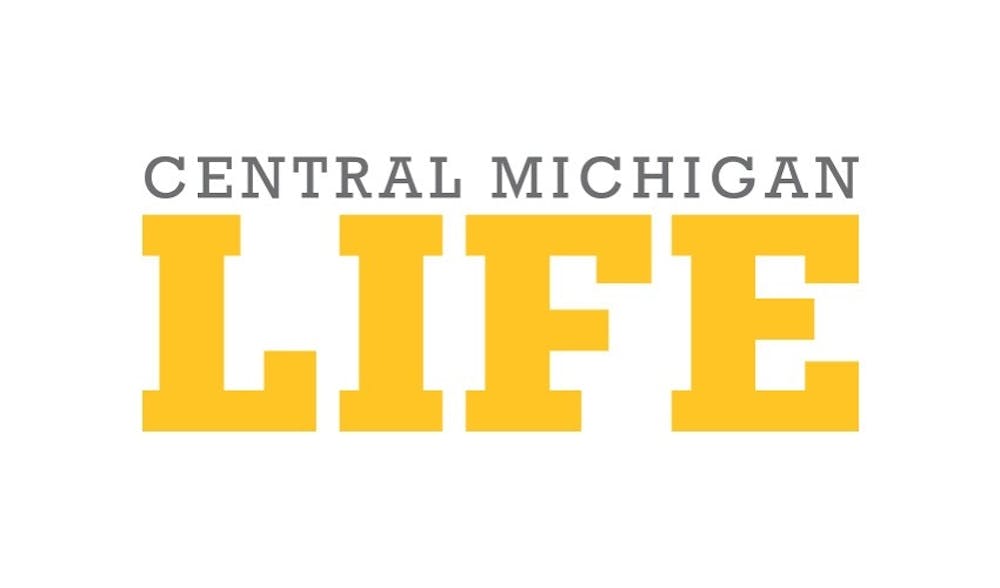The Student-athlete handbook: Five things to know
Participation in intercollegiate-collegiate athletics is a privilege — not a right — the Central Michigan student-athlete handbook states.
Student-athletes are expected to follow a list of guidelines set by coaches, the athletics department, the university, the Mid-American Conference and the NCAA.
Central Michigan's student-athlete handbook — a seven-section, 50-page document — gives student-athletes a thorough guide of the do's and don'ts of NCAA Division I student-athlete life.
Here are five points of interest from the handbook.
1.) Student-athletes elect to be representatives of CMU.
Because student-athletes are willing participants in intercollegiate athletics, they subject themselves to a higher standard of conduct and also more scrutiny. Athletes must abide by academic, athletic and ethical guidelines established by the NCAA and embodied by the MAC, CMU Athletics Department and individual teams.
Student-athletes' social media use has been a national topic of discussion with Division I coaches. Clemson Football Head Coach Dabo Swinney and Ohio State Football Head Coach Urban Meyer banned players from using Twitter during previous seasons.
The handbook states student-athletes are "not precluded" from using social media. However, student-athletes remain representatives of CMU and "all public postings are subject to the review of the athletics department, upon request."
"Remember, no matter where you are, you are always in a Chippewa uniform, so conduct yourself in a way that reflects positively on the entire university," is printed in bold in the handbook.
2.) Study table and academic requirements
The handbook says "NCAA Division I student-athletes are required to exceed the academic requirements of the university's general body."
CMU’s 462 student-athletes averaged a 3.179 GPA, which is the highest combined average in program history.
To stay eligible, Student-athletes must take at least 12 credits and uphold a certain grade point average during their academic careers.
- A 1.80 GPA entering and during second year
- A 1.90 GPA entering and during third year
- And a 2.00 GPA entering and during fourth and subsequent years
Unlike solely academic students, student-athletes have to sign their majors and minors during their third semesters.
They must must fulfill a certain percentage of their major program's requirements during their third, fourth and fifth years.
- 40 percent by third year
- 60 percent by fourth year
- 80 percent by fifth year
All freshmen and new transfer student-athletes are required to attend study table in the Dick Enberg Academic Center during their first two semesters. Other student-athletes might also be required to go, depending on their cumulative GPAs and previous semester GPAs.
The handbook gives student-athletes seven general study table rules, including no eating or drinking, no cell phone use, no social media — internet is for research only.
Student-athletes cannot log more than two hours at study table per session. They can only log two total hours at study table on Fridays and Sundays.
3.) Expect to be in a fish bowl
Division I sports puts young men and women into the media and public eye more than most non-athletes. The handbook encourages student-athletes to interact with the press, but reminds them they can turn down or reschedule interviews.
"Don't conduct an interview that isn't arranged by the Athletic Communications Office," is printed in bold.
The handbook provides a list of "tips" for interviewing with media, including:
- Preparing two or three main messages to get across. It says, "No matter what you are asked you can always go back to those main points you wish to make."
- Refrain from saying "no comment."
- Be positive.
- Show your personality.
- Do not speak "off the record" with a reporter.
4.) Medical treatment
Student athletes are required to disclose medical history, including past injuries and existing medical conditions — orthopedic injuries, ADD/ADHD, general medical conditions. They also are given an initial physical examination.
Some conditions can medically disqualify student-athletes from being able to participate in certain sports, according to the handbook.
- Incomplete rehabilitation of previous injury
- Gross joint instability
- Pregnancy
- Systemic illness
- Communicable disease
- Loss of paired organ
CMU provides student-athletes — who are on an active roster and have an up-to-date Personal Insurance Information Form on file — with a secondary insurance coverage plan for injuries resulting from "organized and supervised contests, practices or conditioning sessions associated with their sport."
CMU will not pay any injury-related medical bills if the student-athlete does not have an up-to-date Personal Insurance Information Form on file.
5.) Drugs and dietary supplements
CMU's Drug Education & Testing Program, which is separate from the NCAA drug-testing program, promotes "a year-round drug free environment."
The department's goal is to clearly identify legal and illegal substances and the health risks, educate everyone associated with its teams about drug and alcohol abuse and establish clear policies to test, address and treat problems involving student-athletes.
Student-athletes cannot participate in practice or competition if they have alcohol in their system. Tobacco use by "all game personnel" is prohibited by the NCAA during all practices and competition.
The handbook urges student-athletes to avoid performance enhancing drugs, recreational drugs and dietary supplements, as these substances are not only illegal, but harmful to the athlete.
The department does not encourage the private use of any dietary or nutritional supplements not approved by the NCAA. The department can only distribute "non-muscle building" nutritional supplements to its athletes.
Student-athletes and entire teams can be selected for social drug or performance enhancing drug testing — a urine sample — randomly or by reasonable suspicion during any time of the year.







